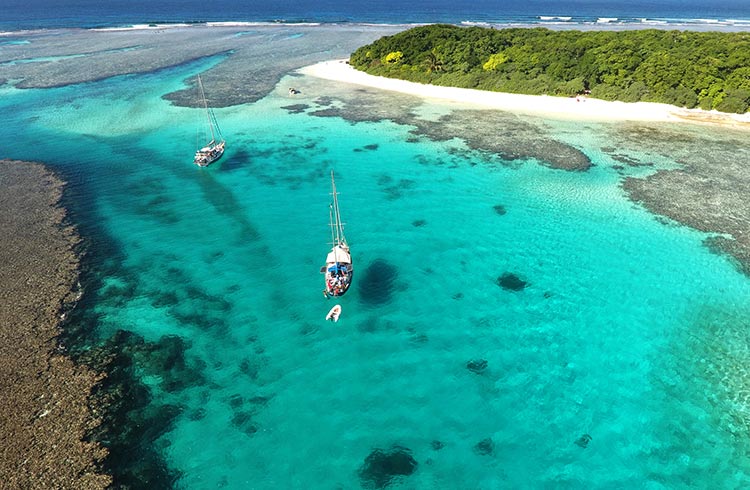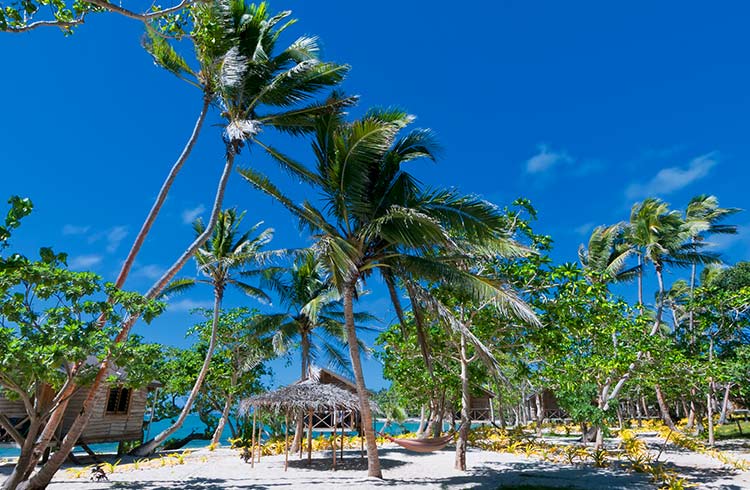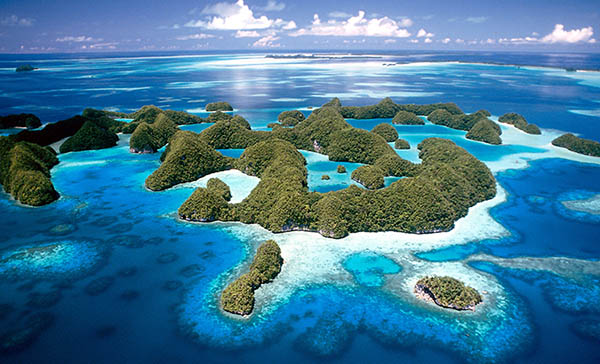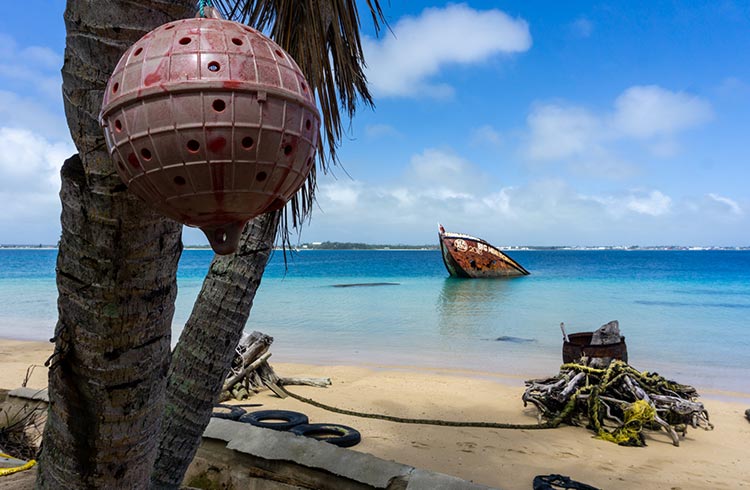Is Tonga Safe? 9 Travel Tips to Know Before You Go
How safe is Tonga for travelers? Find out about island crime, local laws, natural dangers and travel hygiene tips to stay safe.
 Photo © Getty Images/Susanne Michaela Huss
Photo © Getty Images/Susanne Michaela Huss
The Pacific island nation of Tonga is an exciting destination to travel, especially for whale watchers.
With a relatively low crime rate and strict Christian beliefs, this is what travelers need to know to stay out of trouble.
Modesty and respect will go a long way in Tonga. Stay vigilant to protect yourself from any trouble, and find out how to avoid offending the locals with these tips.
Theft and petty crime in Tonga
Petty crime and theft can occur in Tonga. Common sense and the usual travel precautions of securing valuables and not flashing desirable items around should be enough to keep you safe.
Home invasions and property theft are an issue, so keep your doors and windows locked when you leave your accommodation.
Violent robberies are rare, however use caution when walking around at night. Travel in groups and avoid isolated areas and suspicious people.
Sexual assault involving travelers is rare, but has been reported in areas including public beaches. Women travelers should travel in groups at night, and avoid secluded beaches while alone.
Local customs in Tonga
Be more aware of local customs than alert for criminal behavior in Tonga. Society is religious in Tonga, and most people are very conservative.
While Tongans are very friendly people, they are more reserved than people you may have met on other nearby Pacific Island nations.
Take extra care to learn about social etiquette cues, and always do your best to engage politely without offending.
Homosexuality is illegal in Tonga, and even a simple display of affection between same-sex couples could lead to trouble. The law isn't necessarily enforced, however you will likely get unwelcome attention and treatment. Do your best to keep public displays of affection private – and that goes for heterosexual couples, too.
Dress modestly in Tonga
Dress in a conservative manner while traveling around Tonga, by wearing modest clothing that covers the shoulders and knees and not showing off cleavage.
Wearing all black means you are in mourning, and it is considered disrespectful by the Tongans to wear this if you are not grieving.
Pack a conservative bathing suit if you plan to go swimming at public beaches, and you should never go topless. You can wear whatever you like if you are staying at a resort. Men also should not take their shirts off unless they are at a resort.

Businesses are closed on Sundays
Many travelers have learned to their dismay that Tonga's strict Sabbath observance means many business are closed on Sundays. Sunday prayers are practiced by the majority of the island's inhabitants and this observance extends to restaurants, cafes and pubs in addition to sporting events and leisure activities like snorkeling. Even exercising is considered illegal on Sunday, unless you are, once again, staying on a resort.
Drugs and drinking kava
Unsurprisingly, drugs are illegal in Tonga, and any import or export can get you up to 30 years – yes, you read that number right – in prison or a hard labor camp and/or a several hundred thousand dollar fine. Those who grow or sell drugs can face similar penalties. Know that at least these laws don't apply to the local drink Kava, which is said to have a narcotic effect.
Cyclones and earthquakes in Tonga
Tonga is an island nation in the Pacific, and is prone to several forms of natural disaster. It does sit on an active earthquake zone, but normally only ever experiences minor tremors. The earthquake zone does mean tsunamis are more frequent here.
In September 2009, these deadly forces met when an earthquake near Samoa triggered a tsunami that made landfall on Tonga, resulting in nine deaths.
Cyclones also can happen in Tonga, and cyclone season usually runs from November to April, though these weather events can happen in other months, too. During these storms, flooding and severe winds can occur, and power and transportation service may cease.
Swim safely in Tonga
Even if you are a strong swimmer, do not get too confident on the beaches of Tonga. There are coral reefs that are particularly sharp in Tongatapu and Pangaimotu. Strong rip currents can endanger even the best swimmers. Fatalities have occurred in the past here due to strong currents.
Certain spots are more hazardous than others, and it is advisable to ask locals where these locations are.
Jellyfish stings can occur in the waters around Tonga due to bluebottles (also known as the Indo-Pacific 'Man o' War'). If you are stung, ask for an ice pack or apply vinegar to the sting – do not use alcohol.
Wildlife dangers in Tonga
Sea snakes are present in Tonga's waters, but are unlikely to attack. Poisonous cone shells near coral reefs can sting you and, in severe cases, lead to fainting and trouble breathing.
On land, there are other critters than can string you, such as the Molokai, or centipede, which likes to crawl into shoes. Check your shoes before putting them on if they have been sitting outside.
Wild dogs roam the islands, and are usually safe when alone, but can be aggressive in packs. Pretending to throw a stone at the pack of dogs to distract them (but don't actually throw anything to harm the animal).
Stay healthy and avoid getting sick
Beyond the normal list of island sicknesses, there isn't much to worry about in Tonga. Check with your travel doctor before you go for the most relevant list of vaccinations and booster shots that you may require – and aim to visit your doctor at least eight weeks before departure.
Dengue fever is a risk in Tonga, and to avoid this travelers should always protect themselves from mosquito bites. Try to wear long-sleeved clothing at night, wear insect repellent at dawn and dusk when mosquitoes are most active, and avoid leaving windows open while sleeping.
Ciguatera poisoning is unpredictable, and can affect what is usually a safe and edible fish in most other countries. It happens most often in meat-eating reef fish, such as red snapper, Spanish mackerel, or barracuda and moray eels. When you're searching for seafood on the menu, perhaps avoid ordering a dish containing these types of fish. There is no way to identify if ciguatera is present, until you fall ill with an upset stomach, itching, feeling feint, a slow pulse or a temperature.
The water in Tonga can be unpredictable. It's best to ask your hotel or restaurant if they use filtered water. Sometimes they'll use collected rain water, which can pose problems.
Use caution when eating anything containing fresh produce such as salads, and when preparing your own food, peel all fruits and vegetables before eating. Stick to food that is cooked and served hot to avoid contamination.
Related articles
Simple and flexible travel insurance
You can buy at home or while traveling, and claim online from anywhere in the world. With 150+ adventure activities covered and 24/7 emergency assistance.
Get a quote

No Comments